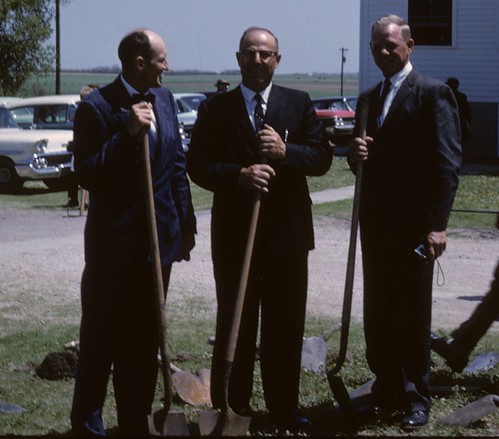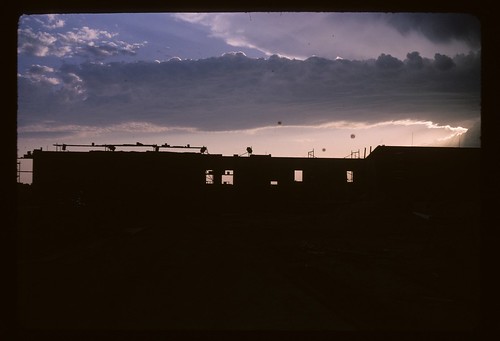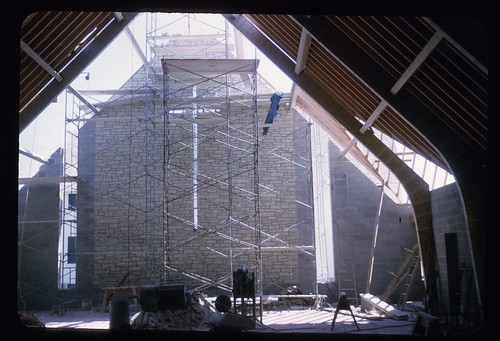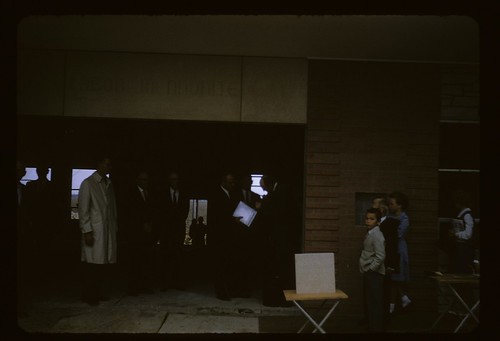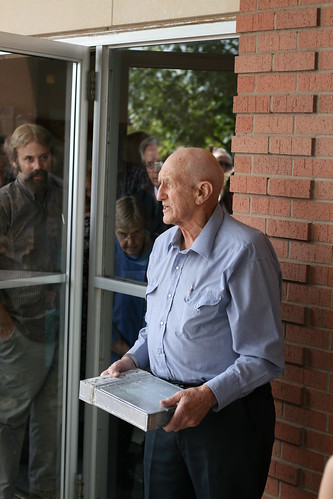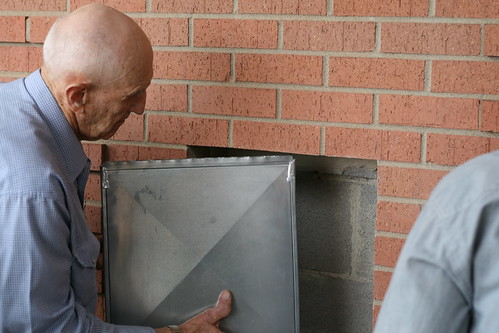Perhaps I am not very imaginative. Or perhaps insufficiently adventurous. But when I woke up today, a day that would actually get a little bit above freezing, I didn’t have a thought of riding without a coat in the bed of a pickup. Nor did I expect to be involved with moving a piano. I didn’t have any thought of listening to piano music outdoors. And I certainly didn’t anticipate the fun to be had doing all of these things simultaneously.
Now, let me back up and set the scene. This was our annual Goerzen Christmas today. We already ate and exchanged gifts.
Here’s the thing about moving pianos, especially the old heavy ones with the cast iron frame inside: it’s not something where a group of people just get together, count to 3, and that’s that. No, you’ve got to start the project out right. You have to break the news that people will be moving a piano gently. And then, of course, you get a room full of people — usually mostly men — and at this point, before any lifting happens, you’ve got to plan. Tape measures must be produced, measurements taken, plans made for how to lift and who should lift where. Differing points of view have to be considered carefully. Then, of course, you have too many people for each one to actually help lift so each person not lifting has to find a job. And then when things actually start going, you realize that not one of the plans fully accounted for the unprecedented weight and maddening stubbornness of the piano, and you have to stop every few feet to plan anew. I don’t think I’ve ever seen a piano move happen in any other fashion.
So, today, my uncle, whose house our gathering was at this year, said, “Ahh good, lots of young backs. Just what I need.” Mildly concerned glances pass between my brothers, my cousins, and I. One brother looks like he’s pretending not to have heard. “We have a few things to move.” Anticipation. “A small couch” — probably not too bad, right? “An upholstered chair” — maybe a bit unruly but still not too bad. “And an old piano is going to a neighbor.” Full alert now — more glances, a pause for a second, and then acceptance: “Oh! Uhm… great!”
My uncle’s friend Ken teaches music at the local college, and on the side, Ken also teaches children how to play piano. One of Ken’s students didn’t have a piano at home, and my uncle and aunt had an old one they weren’t using, which they would give to the family of the student just a couple of blocks away. All that remained was moving it.
There was the inevitable measuring, planning, re-planning, until we got it out of the house and onto the back of my uncle’s pickup. We have about 8 men involved, plus my aunt. Most of us rode in the back of the pickup with the piano.
And of course, there came the inevitable request: “Ken, play for us!” So Ken sat on the edge of the pickup, at the piano, playing as we — and the piano — went through town in the open air. He started with Joplin’s Entertainer, then broke out into some Christmas music — We Wish You a Merry Christmas, followed by Nun Ist Sie Erschienen and a few others. It must be said that small towns in Kansas are probably not accustomed to their Christmas carolers having a piano with them, much less being played from the bed of a pickup. But there we were, mostly laughing too hard or enjoying the ride too much to sing.
To add excitement, or perhaps embarrassment, my uncle was sounding the horn. Some thought that his intent was to have it in time with the piano music from the back, but I’ll give him the benefit of the doubt and say that he meant to sound the horn in that rather random fashion.
Eventually we got to the neighbor’s house, and my dad and another uncle who hadn’t been on the pickup came running up. We hopped down and asked them where they wanted the piano. “Upstairs!” That got repeated among everyone there, producing laughter each time. More tape measures were produced, as it was a narrow staircase. The conclusion was that the piano could make it with about an inch (2.54cm) to spare.
So we got it out of the pickup and onto the porch, then into the house. Now, how to get it upstairs? This called for an extra helping of planning and calculating. Ken, the unofficial piano moving boss, kept reminding us in jest that “I grew up on a farm”. He said he could be alone at the top of the piano while we pushed. This quickly turned out to not be practical; due to the incline, the weight at the bottom was just too much to get it up over the stairs. Ken then went and picked up a wooden contraption they use to move pianos at the college. We tried that, but its supports underneath got stuck on the steps as well. Various ideas were tossed around at this point, until I pointed out that four of us on the bottom couldn’t get it up over a step, so when we get it into the stairway — only wide enough for 2 — we won’t be able to get it up anyhow.
That being considered a good point, various other ideas were tossed around. They all seemed to be wanting either for practicality or, perhaps, safety. Though the idea of having a dozen Goerzens stand at the top of the staircase pulling it up by a rope did have some excellent humor value.
In the end, perhaps wanting our group of free, highly ambitious, but somewhat less effective piano movers out of their house, the neighbors found a place for it on the ground floor. We all piled back into the pickup for the ride back, which was rather more quiet due to lack of horn and piano music.
So there you have it. The most fun I have ever had moving a piano. (Really, the only fun I have ever had moving a piano.)





